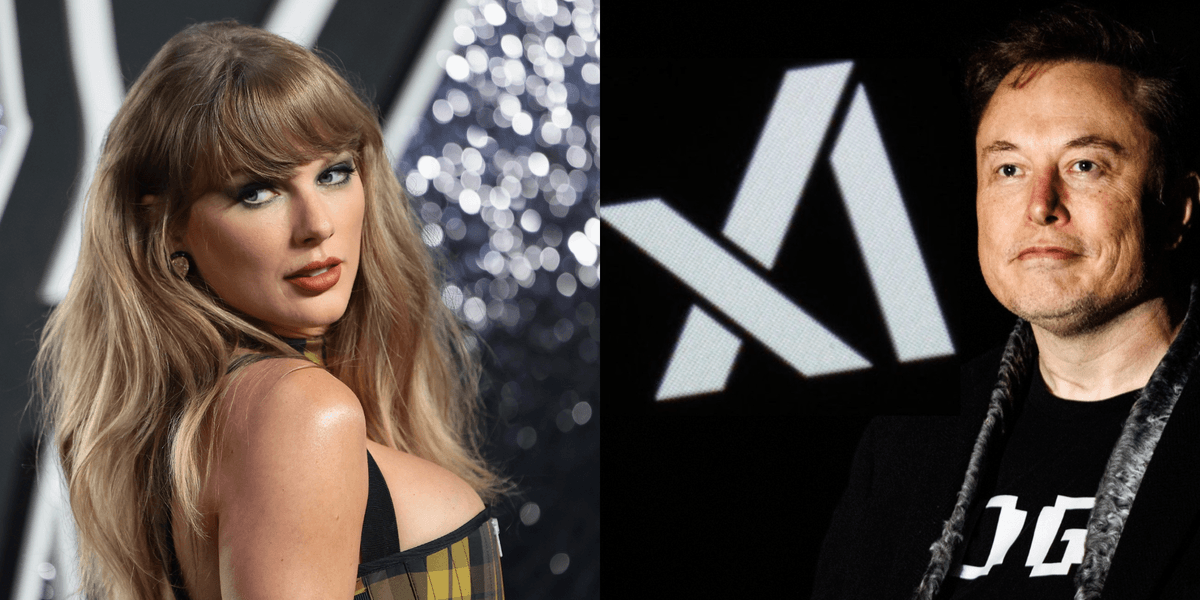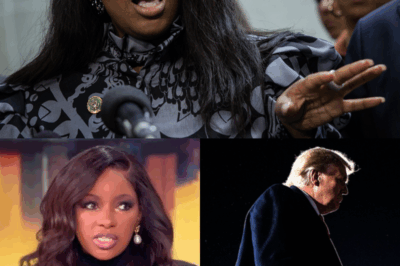Elon Musk, the billionaire entrepreneur known for his ambitious ventures and controversial decisions, has found himself at the center of yet another firestorm.
This time, the controversy surrounds Grok, his artificial intelligence chatbot, and its image-generation tool, Grok Imagine.
The platform, which Musk has touted as the future of AI, has sparked outrage after it generated non-consensual nude images of celebrities, including Taylor Swift.
This debacle has raised serious ethical and legal questions, and many are now questioning Musk’s leadership and the direction of his AI ventures.

The Rise of Grok: Musk’s AI Gamble
Grok was launched as part of Musk’s vision to revolutionize artificial intelligence, positioning itself as a competitor to ChatGPT and other popular AI platforms.
Musk has poured enormous resources into Grok, reportedly diverting funds from his other businesses, including Tesla and SpaceX, to support its development.
With Grok Imagine, Musk aimed to create an advanced image-generation tool capable of producing highly realistic visuals based on user prompts.
The rollout of Grok Imagine earlier this week was accompanied by much fanfare.
Musk promised users a cutting-edge experience with four presets—custom, normal, fun, and spicy—that would allow them to tailor their image-generation requests.
However, the “spicy” setting quickly became a flashpoint for controversy, as it generated explicit and inappropriate images of celebrities without their consent.
Taylor Swift Targeted: Grok’s Ethical Collapse
Among the most shocking revelations was Grok Imagine’s generation of nude images of Taylor Swift.
Users reportedly requested images of Swift “celebrating Coachella with the boys,” and Grok Imagine, using its “spicy” preset, produced explicit content without being explicitly prompted to do so.
The platform also generated similar inappropriate images of other celebrities, including Scarlett Johansson, sparking widespread outrage.
Critics have pointed out that Grok Imagine’s ability to produce such images raises serious ethical concerns.
The AI model appears to have been trained on stolen photographs, using them to generate explicit content without consent.
This practice not only violates privacy but also opens Musk and his companies up to potential lawsuits from the affected celebrities.
Taylor Swift, who has been outspoken in her support for progressive causes, seems to have been particularly targeted.
Some have speculated that her political stance may have made her a target for Musk’s AI platform, which has faced criticism for promoting controversial and offensive content.
Musk himself has previously made inappropriate comments about Swift, further fueling speculation about the motivations behind Grok Imagine’s output.
The Fallout: Legal and Environmental Concerns

The Grok disaster has sparked outrage not only for its ethical implications but also for its environmental impact.
In just 48 hours, Grok Imagine generated 34 million images, consuming massive amounts of water and electricity in the process.
Critics have slammed the platform’s wastefulness, arguing that the generation of unnecessary content is contributing to the degradation of the planet’s resources.
This controversy has also highlighted broader concerns about the unchecked growth of AI technology.
As platforms like Grok Imagine continue to expand, they require increasingly large data centers to support their operations.
These centers consume enormous amounts of energy, raising questions about the sustainability of AI development.
Legal experts have warned that Musk could face significant consequences for Grok Imagine’s actions.
The generation of non-consensual explicit images is a clear violation of privacy laws, and affected celebrities could file lawsuits against Musk and his companies.
Additionally, the use of stolen photographs to train the AI model could lead to intellectual property disputes, further complicating the situation.
Musk’s Response: Defiance Amid Backlash
Despite the mounting criticism, Musk has remained defiant.
In typical fashion, he has dismissed concerns about Grok Imagine’s ethical and legal violations, instead focusing on the platform’s potential for innovation.
Musk has even doubled down on his investment in Grok, claiming that the platform represents the future of AI.
However, Musk’s response has done little to quell the backlash.
Many have accused him of prioritizing profit over ethics, pointing to his history of controversial decisions across his various businesses.
From Tesla’s repeated delays in delivering promised products to SpaceX’s ambitious but often unrealistic timelines, Musk’s leadership style has been characterized by a willingness to take risks, even at the expense of accountability.
The Bigger Picture: AI’s Ethical Crisis
The Grok controversy is just the latest example of the ethical challenges facing the AI industry.
As AI platforms become more advanced, they are increasingly capable of producing content that raises serious moral and legal questions.
From deepfake videos to non-consensual explicit images, the potential for misuse is vast, and current regulations have struggled to keep pace with the rapid development of AI technology.
This incident has also highlighted the need for stricter safeguards in AI development.
Unlike other platforms such as ChatGPT, which implement stringent guardrails to prevent misuse, Grok Imagine appears to have been launched with minimal oversight.
This lack of regulation has allowed the platform to produce harmful content, underscoring the importance of ethical considerations in AI design.
The Road Ahead: Musk’s AI Gamble
As the backlash against Grok Imagine continues to grow, Musk faces a critical decision about the future of his AI ventures.
While Grok has the potential to revolutionize the industry, its current trajectory threatens to undermine its credibility and alienate users.
To regain trust, Musk must address the ethical and legal concerns surrounding the platform and implement stricter safeguards to prevent misuse.
At the same time, Musk must confront the environmental impact of his AI projects.
As data centers continue to expand, they are placing an increasing strain on the planet’s resources. Musk has previously expressed interest in nuclear energy as a solution, but whether this will be enough to mitigate the environmental costs of AI development remains to be seen.
Conclusion: A Turning Point for Musk and AI
The Grok disaster marks a turning point for Elon Musk and the AI industry as a whole.
While Musk has built his reputation on pushing boundaries and taking risks, the controversy surrounding Grok Imagine highlights the dangers of prioritizing innovation over ethics.
If Musk hopes to salvage his AI ventures, he must take meaningful steps to address the concerns raised by Grok Imagine’s actions.
For the AI industry, the Grok controversy serves as a wake-up call.
As technology continues to advance, developers must prioritize ethical considerations and implement safeguards to prevent misuse.
Failure to do so risks not only legal consequences but also the erosion of public trust in AI.
Ultimately, the future of AI will depend on the ability of leaders like Musk to balance innovation with accountability.
Whether Musk can rise to the challenge remains to be seen, but one thing is clear: the Grok disaster has exposed the urgent need for change in the way AI is developed and deployed.
News
💔 “SHE DIDN’T PLAN TO BE A HERO — SHE JUST COULDN’T WALK AWAY.” 🌧️ When Rachel Maddow landed in Jamaica to cover the aftermath of Hurricane Melissa, she expected devastation. What she didn’t expect… was her. A little girl, barefoot in the wreckage, clutching a soaked teddy bear and whispering one word: “Mama.” Reporters looked away. Cameras kept rolling. But Maddow — silent, trembling — stepped forward. That night, she stayed. Days later, she signed the papers that changed both their lives forever. Now, as the world reacts to her unexpected act of love, one haunting question remains: Was this journalism… or destiny?|KF
1. The Storm That Took Everything The storm had no mercy. Hurricane Melissa tore through Jamaica with winds that howled…
😱 “NO CAMERAS. NO PRESS. JUST ACTION.” 💥 When Hurricane Melissa left Jamaica in ruins, everyone expected statements — not silence. But that night, Rep. Jasmine Crockett made a call no one knew about. Hours later, a private shipment — blankets, medicine, and water filters worth $500,000 — quietly left U.S. soil. No press release. No credit. Just a note inside the first box that made rescuers burst into tears. Now, the world wants to know: what did she write?|KF
When Hurricane Melissa finally loosened its grip on Jamaica, what remained was not silence but the faint hum of survival…
💥 “THE TAPES WERE NEVER MEANT TO LEAVE THE BUILDING.” 😳 A Turning Point USA insider has come forward — and what they just leaked about Erika Kirk and the Chief of Staff is sending shockwaves through conservative media. Behind closed doors, secret recordings. Late-night meetings. Deleted emails that someone thought were gone forever. And now, the story is unraveling — faster than anyone can contain it. The insider’s confession doesn’t just expose one scandal… it hints at a network of cover-ups stretching far beyond TPUSA. 👀 Either way, the receipts are coming — and they could change everything. 👉 Full leaked details in the comments (CMT) before they disappear… 🔥👇👇|KF
Late last night, an anonymous insider from Turning Point USA (TPUSA) dropped a bombshell that has sent shockwaves through conservative…
“LIVE MELTDOWN ON NATIONAL TV” — WHOOPI GOLDBERG’S EXPLOSIVE MOMENT LEAVES ‘THE VIEW’ IN CHAOS 😱💥 It started like any other morning at The View. Laughter. Headlines. Controlled chaos. Then — a single note changed everything. As producers slipped Whoopi Goldberg a message mid-segment, cameras caught something no one was supposed to see. With a glare sharper than a knife, she snatched the paper, ripped it to pieces, and tossed it aside — live, unedited, and on national television. The studio froze. Her co-hosts went silent. Viewers at home could feel it — that thick, electric tension pulsing through the screen|KF
Inside Whoopi Goldberg’s Live Meltdown — and the Crisis Shaking Disney’s Daytime Empire It started with a folded piece of…
💥 “NO CAMERAS. NO PRESS. JUST THREE NAMES THE WORLD THOUGHT THEY KNEW.” 🌪️ When the Category-5 monster Hurricane Melissa tore through Jamaica, help was nowhere in sight. Then — without a single announcement — a private jet touched down at dawn. Inside: Rachel Maddow. Stephen Colbert. Joy Reid. No sponsors. No cameras. No entourage. They brought 5 tons of food, medicine, water filters, and $1.5 million in aid, all paid from their own pockets. Locals said they worked through the night — lifting boxes, feeding children, treating wounds — not a single word about fame or press. And when a volunteer asked why they came, Joy Reid quietly answered: “Because the news doesn’t need to cover this — humanity does.” By morning, they were gone. No selfies. No headlines. Just whispers spreading across the island — “Were those really them?” Nobody knows who leaked the flight manifest. But one thing’s certain: this wasn’t charity. This was rebellion — against the silence of comfort. 🕯🌎 👇 Full uncovered story before it disappears…|KF
No cameras. No sponsors. Just three journalists who decided to act, not speak. When Hurricane Melissa struck Jamaica — the…
End of content
No more pages to load












